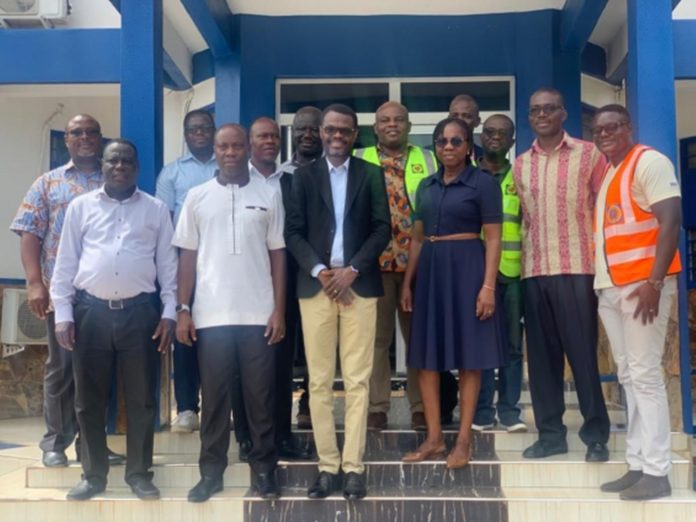The Ghana Water Company Limited (GWCL) has connected 60,000 customers in the Greater Accra Metropolitan Area (GAMA) to smart water meters to enhance billing and water distribution.
The move, which has transformed the area into what GWCL describes as a “smart district”, now makes it possible for officials of the company to read the water meters of the connected customers remotely from their offices without needing to move from one house to another or to meter installation points.
At the second edition of the GWCL’s “accounting to our customers” press briefing and exhibition in Accra yesterday, the Managing Director of the GWCL, Dr Clifford A Braimah, said it was part of a number of proactive measures against billing discrepancies and tariff adjustments aimed at improving service delivery.
He mentioned some of the other proactive measures including the implementation of an efficient billing system, investment in smart meters, and an electronic billing system.
As of the end of August 2023, GWCL’s customer base stood at 923,000 and is projected to grow to 939,000 by the end of the year.
The growth, which would be a six percent increase compared to the previous year’s, has been attributed to various factors, including the company’s focus on customer engagement, service quality, and economic development.
Mr. Braimah also credited the company’s achievement to targeted marketing strategies, community outreach, and strategic partnerships to attract new customers.
Accurate billing
Dr. Braimah said the introduction of an electronic billing system had substantially increased electronic payments, recording monthly average revenues of GH¢16.9 million from over 86,000 transactions as of August 2023.
The company projects that water revenues from electronic payments would reach GH¢203 million by the end of 2023.
In 2022, the company collected a total water revenue of GH¢1,232.50 million, representing a 37 percent increase from the previous year, an achievement Dr. Braimah attributed to enhanced billing accuracy, streamlined payment processes, debt recovery efforts, and the introduction of various digital payment channels, as well as educational campaigns that encouraged timely payments and tariff adjustments.
Dr Braimah said the GWCL employed consistent water quality monitoring, deployment of improved water treatment chemicals, and quality assurance measures to ensure that the quality of its drinking water met established standards.
The Minister of Sanitation and Water Resources, Freda Prempeh, commended the GWCL for working to enhance its service delivery and urged the public to protect water bodies.
ALSO READ:

